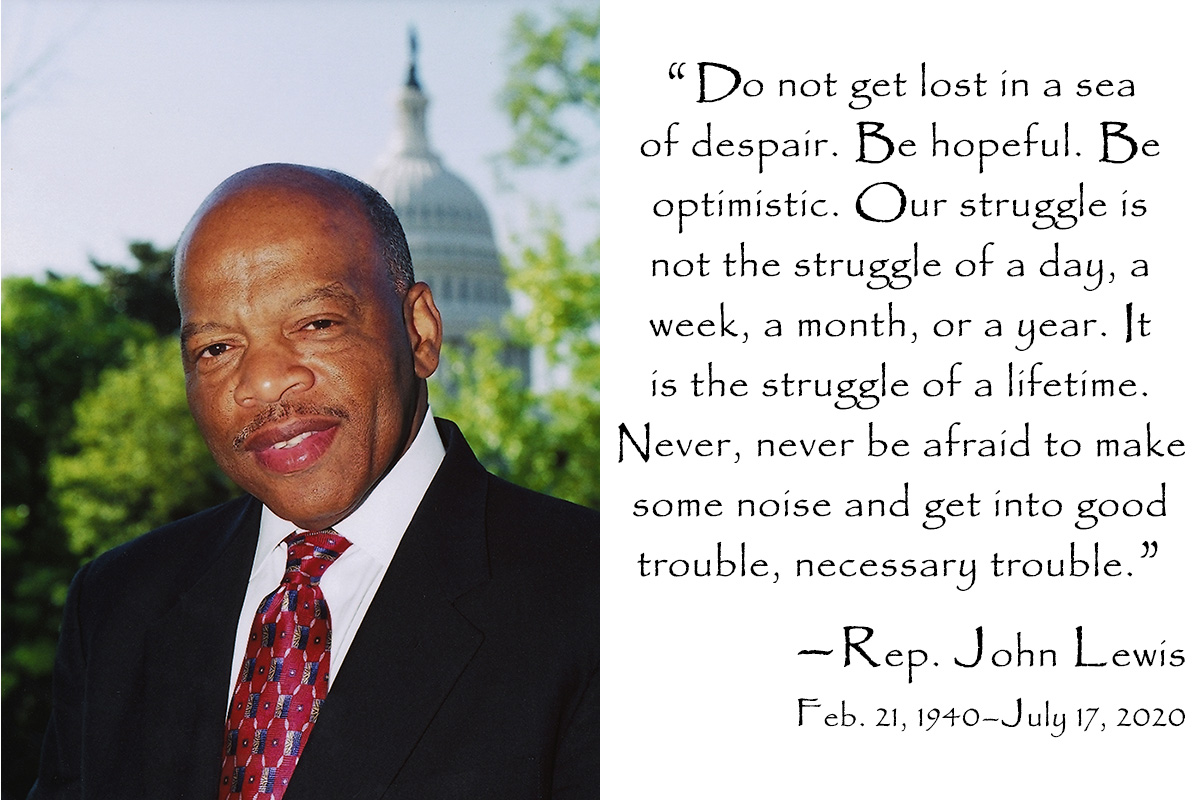When you see something that is not right, you must say something. You must do something. Democracy is not a state. It is an act.
Ordinary people with extraordinary vision can redeem the soul of America by getting in what I call good trouble, necessary trouble.
— Rep. John Lewis
When I was a child, getting “into trouble” was something I always tried to avoid. I didn’t want to get into trouble with my parents or my teachers. When I was in 4th grade, the teacher saw me when I stuck my tongue out at her. I was mortified because someone from school called my mom; I was in “big trouble” that day. On another occasion, when I was in high school, I tossed a pencil to a friend who needed one and got sent to the office for that infraction. Although initially the punishment was two weeks detention, I only served one week. That was a relief.
That’s not the trouble that John Lewis speaks about. What is “good trouble”? Rosa Parks got into “good trouble” when she refused to give up to a white man her seat on a Montgomery, Alabama, bus. Yes, she broke a law and yes, she was arrested, and she did it in a non-violent way. In doing so, she inspired the Montgomery Bus Boycott, which lasted 381 days; and eventually, bus segregation was held to be unconstitutional by the U.S. Supreme Court. Something wasn’t right. Rosa Parks did something about it; and today, she is regarded as “the first lady of civil rights” and “the mother of the freedom movement.”
Is John Lewis posing that question to me? Why do I think “good trouble” is not something I should avoid? What is “good trouble” for a 70-year-old white woman?
I believe that Lewis was speaking to me. Our country continues to have challenges associated with race, racism, equality, and “liberty and justice” for all. All people (dreamers and others) are due basic human rights, including the right to liberty, equality, and freedom from degrading treatment. In America, we afford citizens certain specific rights, such as the right to vote. As a country, we must strive and persist to ensure that all citizens are entitled to the same rights and privileges that I enjoy. “Good trouble” is not something I should avoid. I try to embrace it and make community, state, and national contributions by voting and by regularly contacting my legislators to express my views on important issues.
In addition, my book, Dr. King, The Rabbi, and Me: A Connecticut Journey, is my personal attempt to promote important conversations between adults and upper elementary/middle school students. I believe that kids like to talk about important, relevant issues. They certainly have opinions! I think that the value of providing kids opportunities to talk about racial awareness, racism, democracy, social justice, and the relevant realities associated with their own life experiences cannot be underestimated.
John Lewis would be elated about the historic Georgia voter participation during this past election cycle. Voting is “good trouble.” Violence is not. Hopefully, my book qualifies as “good trouble.” What kind of “good trouble” are you committed to?
— Carol-Anne Hossler
Bloomington, Indiana
